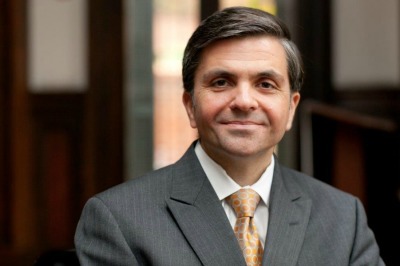Hillsong Church, Relevance and Pariahs

There's a good piece by Andrew Walker in First Things on a popular international church network called Hillsong's apparent equivocation on marriage. At a recent New York press conference, the ministry's leader, Brian Houston, declined to answer whether the ministry affirms the biblical position. Instead, he stresses the church's need to stay "relevant."
Earlier this year the pastor of Hillsong's New York's congregation, the ultra hip Carl Lentz, shared similar views with CNN. His wife added: "It's not our place to tell anyone how they should live. That's their journey."
Hmmm. If it's not the church's place to tell anyone how to live, then what is the church's purpose? Entertainment? Affirmation?
Socialization? And if it's not the church's role to counsel how to live, then who or what should? Perhaps it's the central message of our age that each autonomous individual chooses his/her own path without reference to others.
But of course, absent transcendent authority, individuals, no matter how independent, hearken to temporal influences in their life choices, often the passing fads of their culture and age. Typically transient fads are not helpful, reliable guideposts for life fulfillment. So most of humanity does and has looked to religion, at least at times, for more permanent guidance.
All religion, even its most permissive forms, aims on some level to tell its adherents how to live. Otherwise it has no purpose. Certainly Hillsong preachers must fill their sermons with admonitions. A sermon from Lentz in 2013 spoke of complete surrender to Christ: "Unless you eat the flesh of the Son of Man and drink His blood, you have no life in you." He added: "When you take a bite of me, when you really follow me, everything in me goes in you—you can't pick and choose."
Indeed, but the more recent Hillsong comments imply there can be some picking and choosing, at least on sexual ethics. Perhaps the Hillsong preachers still privately adhere to Christian teaching on marriage but don't want to risk public controversy. At his New York press conference, Pastor Houston explained:
"And to me, the world we live in, whether we like it or not is changing around and about us. Homosexual marriage is legal in [New York City] and will be probably in most Western world countries within a short time. So the world's changing and we want to stay relevant as a church. So that's a vexing thing. You think, 'How do we not become a pariah?' So that's the world we live in."
The challenge is that the Cornerstone, Founder and Lord of the Church was crucified as the ultimate despised pariah, and He warned that His followers would often be pariahs. Yet somehow this collection of pariahs, across the centuries, in every culture, preaching the Gospel of an executed but risen pariah, has made His message the most "relevant" message of all time, everywhere.
The Gospel is simultaneously reviled, resisted, acclaimed, and revered. Millions hate it, and millions would also give their lives for it and its hated Preacher. It not only tells people how to live, it tells them to walk a very narrow path, often strewn with sorrows, but also crowned by glory, in this world, and in the world to come.
Among the Gospel's central themes is that true relevance, the kind the world actually respects, risks not only contempt but also life itself. In Christ's words: "For whosoever will save his life shall lose it: and whosoever will lose his life for My sake shall find it."





















